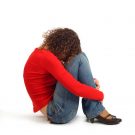How to feel gratitude when your world is falling apart
I spent most of my early life being challenged with the idea of gratitude. As a daughter of a sociopath and a narcissist, I struggled with self-preservation in the midst of cruelty and craziness. I couldn’t trust the very people who were supposed to keep me safe, and my struggles with depression, anxiety, chronic stress, and loneliness made gratitude feel completely beyond my reach. And a big part of the problem was how I perceived my peers. Every one of them seemed to “normal healthy parents” who treated them well. At least, so I thought.
I had what I now call, “gratitude deficit syndrome”.
Read MoreWe can’t be healthy alone
In America, we frame our ability to succeed in terms of our own skills and hard work. We are typically incentivized to win, to become that next big star, to reach that next milestone, or to become famous.
This constant competitiveness creates an us vs. them mentality. It has made us reward and idolize those that have made it, and neglect those that struggle.
And for those who have made it, well, it’s been great for them. But meanwhile more and more of us are living paycheck to paycheck. More and more of us are facing homelessness. More and more of us are becoming depressed, addicted and suicidal.
Read More
A New Discovery about the link between Stress, Sleep and Healing
If a client is struggling with several chronic conditions where their problems are growing, I often find out that they aren’t sleeping well.
Sleep is vital for our bodies to repair.
Why?
Our bodies operate in two main modes. We have an autonomic nervous system that operates either in a rest and digest state, called the parasympathetic nervous system, or the fight and flight state, called the sympathetic nervous system. Our bodies cannot operate in both modes simultaneously. By default, the parasympathetic nervous system turns off the sympathetic nervous system.
Our bodies need to be able to default to the parasympathetic state in order to heal. And a lack of sleep might indicate that we can’t relax enough for our bodies to repair. Our bodies cannot both be in fight or flight, and rest and digest at the same time.
We have also known that sleep helps solidify what we’ve learned, and that our brains detoxify during sleep.
But recently, a new discovery at the University of Rochester shows a clear demonstration of how stress inhibits both our ability to sleep, and our ability to heal.
Read MoreWe Need Trust to Thrive
My world without trust
I grew up in an environment where I was regularly criticized, berated, or yelled at for minor infractions. I never knew when the tirades would come, and so I tried at all costs to avoid my parents. But it wasn’t easy to thrive in our small home. I didn’t know who I could trust. I felt like I was constantly walking on eggshells, and because I felt I could be blamed for just about anything, the world did not feel like a safe, just, or fair place to be.
It took decades to finally understand the diagnoses that explained my parent’s behaviors. But as a kid, it was much harder to make sense of the anger. I alternated between trying to please them and lashing out. Because I couldn’t make sense of my life at home and lacked healthy parenting, I had to draw my own conclusions about the world. I decided that I had to take care of myself. I couldn’t trust people of authority or God. Love wasn’t something that I could count on. I couldn’t trust that good things or good people could come my way.
Read MorePermission to Grieve
Memorial Day.
Usually it’s for grieving over the loss of our war veterans.
But this year, let’s use it to honor our grief for what we’ve lost due to COVID-19.
While I believe its important to look for the silver linings and stay positive, it’s essential that we take the time we need to grieve our losses.
Chronic Stress, Your Immune System & Response to the Coronavirus
While our bodies are adapted to handle short term stressors, they are not equipped for the chronic stress so many Americans endure.
Once you are used to chronic stress, it can be hard to get out of the habit. We often feel that we can’t, that we have too many people to please and obligations to fulfill. But being chronically stressed is not sustainable.
Chronic stress makes us more irritable, makes it harder for us to relax, and increases our risk of almost every disease, including infectious diseases.
And now with a lurking deadly virus, this is a great time to prioritize our immunity to build resilience!
Below are 3 compelling ways chronic stress weakens our ability to fight pathogens, and especially the Coronavirus.
My mission is not to scare you out of your wits, but to scare you into your wits. Revisiting these has helped compel me to make lowering my stress an important priority, and I hope it will do the same for you.
Plus at the end, I’ll reveal my favorite stress relieving strategy which you don’t want to miss.









